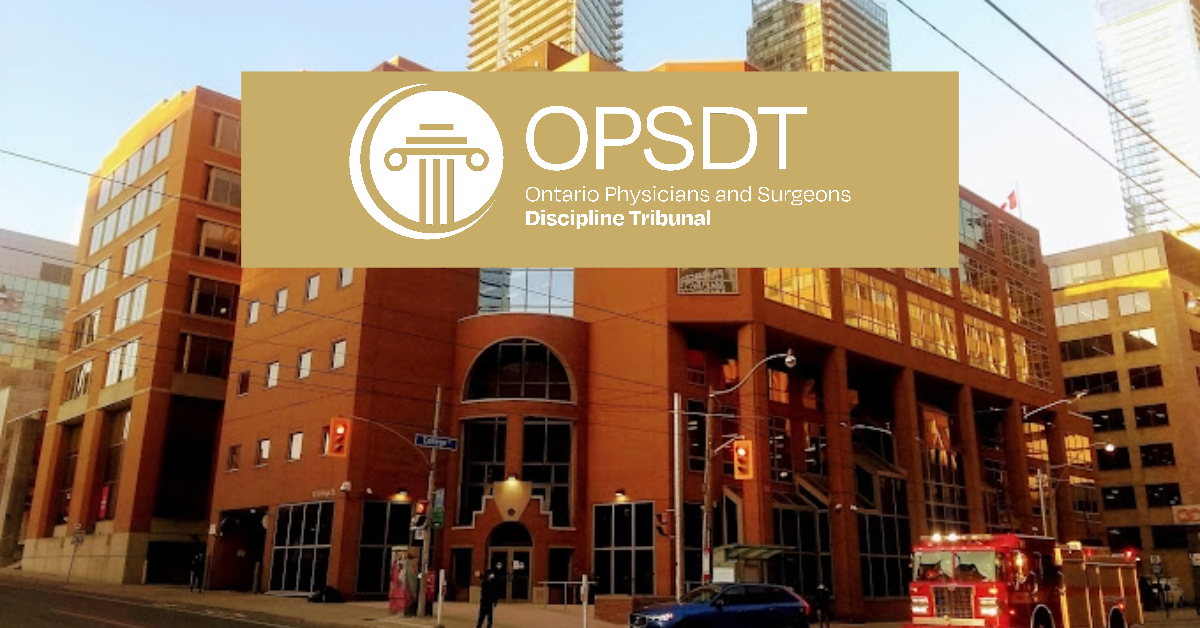
Nurse Alters Morphine Record, Patient Dies: CNO Orders Permanent Resignation
A Profound Breach of Trust in End-of-Life Care In CNO v. Lindsey Coyle, the Discipline Committee of the College of Nurses of Ontario addressed one

This was an Ontario Court of Appeal decision regarding a Plaintiff who suffered an anticoagulant medication error. The trial judge found that the medication error caused no physical injury, however, he did conclude that there was a mental injury. The Defendant hospital appealed on the finding of a mental injury.
BACKGROUND
The Plaintiff, Craig Bothwell had Crohn’s disease for which he had a number of resection surgeries. On September 22, 2011, he went to the London Health Sciences Centre, Victoria Hospital (the “Hospital”) to undergo a reverse ileostomy for an earlier resection surgery at the Hospital. While recovering in the post-anaesthesia care unit (the “PACU”), his blood pressure began to drop and the doctor ordered that he be administered Voluven, a blood volumizer. The nurse administered in error the anticoagulant Heparin instead.
When Mr. Bothwell awoke in the PACU, he heard someone ask if the Voluven had been hung and then he heard words to the effect “that’s f***ing Heparin”. Heparin could cause massive bleeding. He was shocked by this revelation.
A short time later, Mr. Bothwell underwent surgery to relieve abdominal cavity pressure as a result of substantial internal bleeding. Days later, he underwent further surgeries to close the abdomen and related procedures. When he later learned again of the administration of the Heparin, he was shocked, frustrated, and angry. His feelings of anger and frustration continued to the time of trial.
Mr. Bothwell and his wife Miranda Bothwell are both paramedics and were at the time of the medication error. They have two young children, with the eldest having been born just after the medication error incident. Mrs. Bothwell thought she would lose her husband. They sued the Hospital in negligence.
In the Claim, the the Plaintiffs alleged that Mr. Bothwell had experienced an exacerbation of his symptoms of Crohn’s disease, injuries to internal organs, digestive issues, neurologic injury, weakness, muscle wasting, sensory loss, nightmares, emotional distress, anxiety, depression, and psychological injury as a result of the erroneously administered medication.
The defence theory was that an intraoperative injury caused the hemorrhage, not the medication error. They argued that Mr. Bothwell was already hemorrhaging before the Heparin administration error occurred and that he would have required the further operation to stop the bleeding in any event.
The trial was bifurcated with liability to be decided in the first trial and damages in the second.
The first trial was focused on causation: had the mistaken administration of Heparin (1) caused Mr. Bothwell to hemorrhage and suffer the ensuing physical consequences, and (2) caused the Plaintiff psychological damage amounting to a mental injury?
After the first trial, the trial judge issued a decision (the “First Decision”). In it, the trial judge found against the Plaintiff on the first causation issue. He accepted the defence expert opinion that Mr. Bothwell was hemorrhaging prior to the medication error and the hemorrhage was caused by an intraoperative injury that would have required reoperation to address even if the medication error had not occurred. He further found that the Plaintiff had failed to prove that the medication error caused any additional physical injury.
In the First Decision, the trial judge did not decide the second causation issue. The trial judge stated that the Hospital acknowledged the medication error had caused Mr. Bothwell a mental injury. However, after the release of the First Decision, the parties clarified with the court that there had been no such concession or acknowledgement. The parties also agreed the court had made no determination as to whether Mr. Bothwell had suffered a mental injury as a result of the erroneous administration of Heparin and that the record was complete as to the evidence and submissions on that matter.
The trial judge then issued a second decision (the “Second Decision”), in which he addressed whether the medication error caused mental injury to the Plaintiff.
While Mr. Bothwell had alleged in the Claim that he suffered nightmares, emotional distress, anxiety, and depression following the medication error, the evidence led at trial was much more limited. The only evidence on the matter of psychological injury came from the Plaintiffs; they did not lead any expert evidence.
The trial judge accepted Mr. Bothwell’s evidence that he was frustrated and angry about the medication error, those feelings persisted up to trial in 2020, and they were revisited whenever he attended the Hospital for his work as a paramedic. He described Mr. Bothwell’s testimony as reliable and sincere, not prone to exaggeration, and sensible and fair. There was no evidence that Mr. Bothwell had sought or received treatment for his emotional reaction to the medication incident and he acknowledged that it had not interfered with his ability to do his job.
The trial judge stated that the Hospital owed Mr. Bothwell a duty of care which they breached through administering Heparin to him. He stated that he was “cognizant and careful not to confuse nor conflate the erroneous administration of medication with [Mr. Bothwell’s] extended stay in hospital and recovery”. He concluded that the causation requirement between the breach and Mr. Bothwell’s psychological upset met the standard described in Saadati: Mr. Bothwell’s feelings were objectively and subjectively serious and went beyond ordinary annoyances. It is the determination in the Second Decision that Mr. Bothwell suffered a mental injury caused by the medication administration error of Heparin which is under appeal.
APPELLATE DECISION
After reviewing the trial evidence and relevant case law, the Ontario Court of Appeal concluded that there was no question that the medication error breached the standard of care that the Hospital owed Mr. Bothwell. It acknowledged that this medication error was a deeply disturbing event for him and his wife. Mr. Bothwell’s persisting feelings of anger and frustration about the medication error are understandable. However, the Court of Appeal stated that feelings of anger and frustration, without more, is evidence of psychological upset, not injury.
Based on the principles in the Supreme Court of Canada case of Saadati, in the absence of evidence of impairment of cognitive functioning, interference with activities of daily living, or treatment for emotional symptoms, the claim for mental injury cannot succeed. As a result, the Plaintiffs’ claim was dismissed.
Decision Date: May 1, 2023
Jurisdiction: Court of Appeal for Ontario
Citation: Bothwell v. London Health Sciences Centre, 2023 ONCA 323 (CanLII)

A Profound Breach of Trust in End-of-Life Care In CNO v. Lindsey Coyle, the Discipline Committee of the College of Nurses of Ontario addressed one

What College of Physicians and Surgeons of Ontario v. Thirlwell, 2026 ONPSDT 5 Means for Patients and Public Trust In College of Physicians and Surgeons